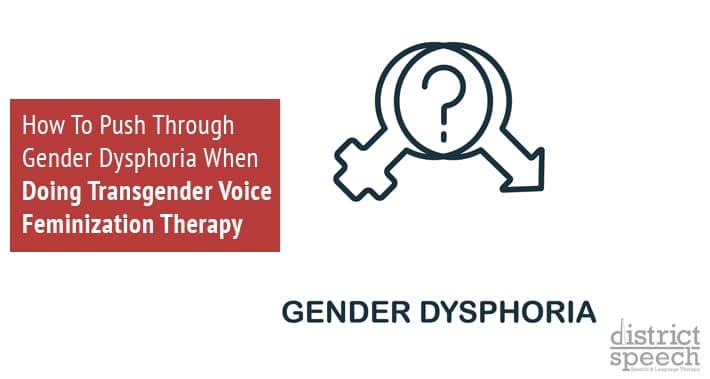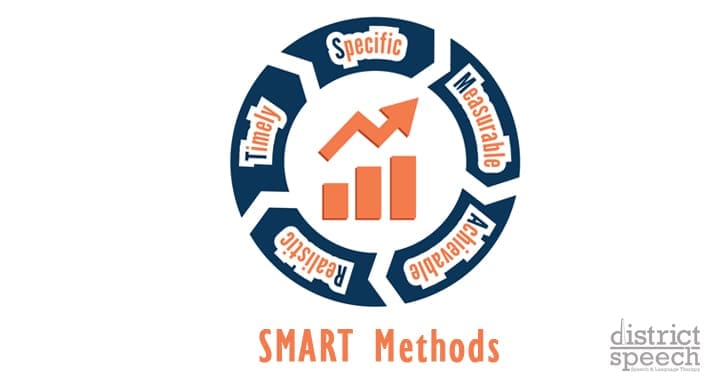
It’s pretty much a given that the first time you try something, you’re going to stink at it.
Playing an instrument, knitting, riding a bike, painting a portrait, learning how to ice skate, it’s all the same.
You admire someone who knows how to do what you’d like to do, so you give it a shot, and it turns out you’re terrible at it.
But of course, being terrible at most skills doesn’t come with gender dysphoria.
If you’re starting transgender voice therapy, whether it’s with a speech therapy clinic like District Speech And Language Therapy, another coach, or even just on your own, you might run into the dysphoria wall.
But there’s a way to get past that wall.
Keep reading as we take a look at how.
This article was written by Sophie Edwards, transgender voice feminization coach at District Speech, and creator of We Have Always Existed, a transgender ancient history series on YouTube.
Overcoming Dysphoria
Everyone’s experience with dysphoria is different, so I don’t pretend to know what your individual experience is.
As a (mostly) binary trans woman myself, my experience with gender dysphoria will be different than a nonbinary person.
But even within each trans woman, there are differences.
No two trans women have the same experience.
Trans experiences are not monoliths.
It turns out that individual people can have different reactions to things.
That said, most trans people can relate to the idea of having gender dysphoria.
This can be especially true when it comes to hearing your voice.
For me personally, one of the biggest triggers for my dysphoria is in the days before I have electrolysis done.
For those who don’t know, electrolysis is a treatment that removes hair from your body.
It’s considered the only permanent form of hair removal.
For those of us who have particularly thick and stubborn facial hair it can be the only way to go.
However, to get it done, you have to grow out your facial hair for a couple of days beforehand.
And if you’re a trans femme yourself, I’m sure I don’t need to explain to you why that makes me feel terrible.
Here’s how I manage to get through it.
Emotional Vs. Logical Responses
As humans, in certain ways we’re used to looking at the world through a logical lens.
We see a problem, we try to create a solution based on logic.
That works great when we’re facing a logical problem.
But gender dysphoria isn’t logical.
You feel dysphoric, the same way you feel frustrated or anxious or excited or joyful or any other emotion.
As a result, it’s sometimes hard to use logic to relieve that feeling and push on with your voice training, whether you’re a transgender woman or a transgender man.
But you can try.
Here are two logic driven ways you can push through the dysphoria you feel when doing transgender voice feminization training, and then alleviate it once it’s done.
1. Have A Plan
One method of goal setting is the SMART method.
It means setting goals that are:
- Specific
- Measurable
- Attainable
- Relevant
- Time based
This is the best way to trick your mind into pushing through the dysphoria you might feel when doing your voice exercises.
Saying “I’m going to practice my voice exercises” today isn’t a strong goal, because it’s so vague and nebulous.
It’s easy to either do a single exercise for 10 seconds and say you did it, or to do it and then not feel like you’ve done enough.
On the other hand, using the SMART approach, a goal might look more like “I’m going to do three sets of each of my exercises twice today, once in the shower and once in the car ride home.”
These are specific, in that you’re referring to exactly what you plan to do instead of a general idea.
They’re measurable, in that you know exactly when you’ve completed them.
They’re attainable, in that they’re something you can do.
They’re relevant, obviously.
And they’re time based.
Setting a SMART goal helps you push through the dysphoria, because you know there’s a specific end in sight.
Once you’ve accomplished the goal, you can move on with your day and leave the dysphoria behind you.
RELATED: Frequently Asked Questions About Speech & Language Therapy

2. Do Something Gender Affirming After
If doing vocal feminization training exercises causes you dysphoria, that’s a reality.
The dysphoria will ease over time as your voice improves, but that’s not going to help for the first few times.
The reality is you’ll just have to deal with that dysphoria, like I do when I have to grow out my facial hair for two days before getting electrolysis.
Once it’s over, though, take the time to do something that helps you reaffirm your gender.
For some folks it’s wearing their favorite outfit and making skirt go spinny, or spending a bit of extra time on your makeup.
For others it’s spending time with your romantic partner or good friends.
Or it might just be curling up into a ball and watching reruns of your favorite TV show or doing yet another play through of Fallout: New Vegas.
Whatever it is that makes you feel good after, do it.
Pushing through dysphoria is hard work, but you’ve done it.
You deserve to experience some gender euphoria after.
And remember, in the long term, working on your voice exercises will improve your mental health as your voice starts to sound more and more like you feel it should.
Book Your Appointment With District Speech Today
As I sit here writing this, it’s Pride month.
Each of us deserves to be proud of who we are, but for many of us it’s a hard fought battle rather than a given.
If you’re struggling with gender dysphoria due to your voice, you’re not alone.
But there is help out there.
Book your appointment with District Speech today, and we’ll work toward giving you the voice you’ve always dreamed of.
If you want to work with me, I practice solely through speech teletherapy, but District Speech does offer in person sessions with other providers as well.
Book your appointment with District Speech today.
1300 I St NW, Suite 400 E,
Washington, DC 20005
- https://g.page/districtspeech
District Speech and Language Therapy specializes in speech therapy, physical therapy, and occupational therapy solutions, for both children and adults, in the Washington D.C and the Arlington Virginia areas.